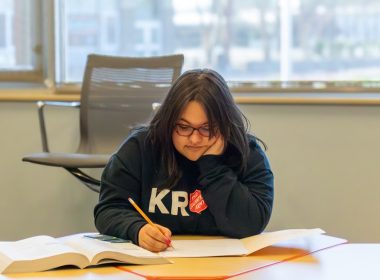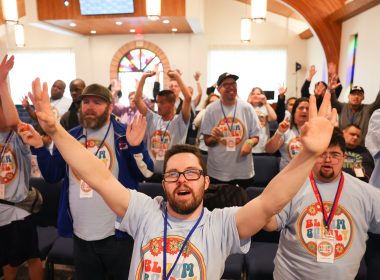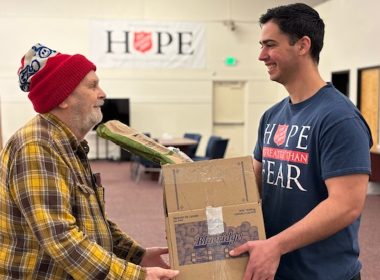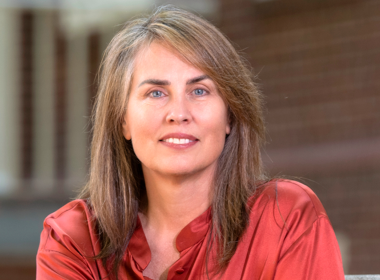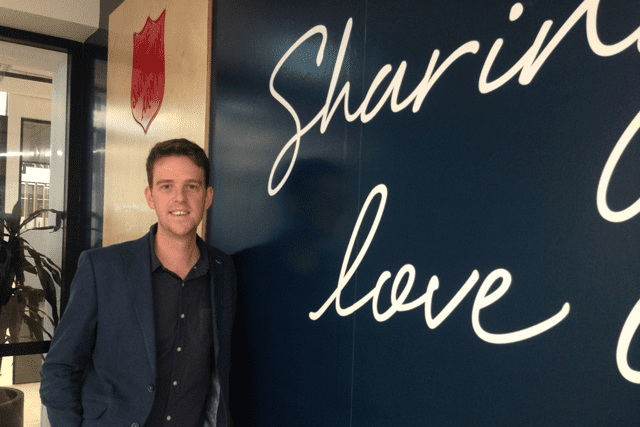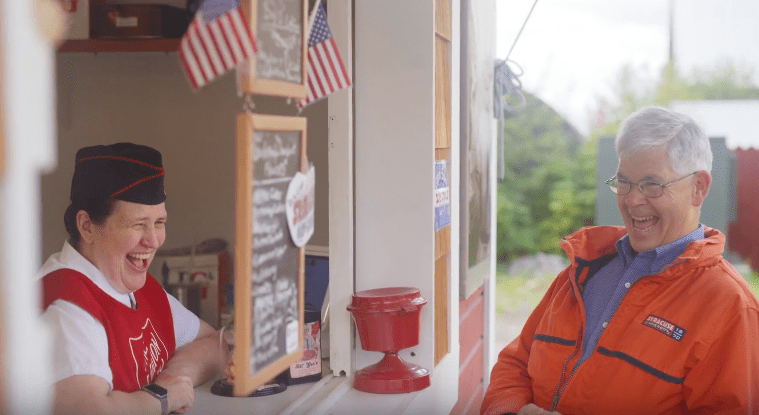A challenge to how we see and treat those who are different from us.
By Anne Simpson –
Reducing the gap between what we believe as followers of Jesus and how we live in relationship to others is both a professional and personal passion for Marcus Hutchins, Projects and Development Coordinator for the Social Program Department in the Australian Eastern Territory.
For the past four years Hutchins has been working on the development of a project called “The Fundamentals: The basis for how we work,” a framework designed to bring about genuine transformation in the lives of individuals, and communities through challenging how we see and treat those who are different from us.
The project is aimed at helping frontline Salvation Army personnel think intentionally about the way they relate to people on a daily basis and how it aligns with organizational identity and values.
 The fundamentals framework comprises four key practice principles: we welcome all people; we seek to understand; we promote interdependence; and we facilitate sustainable growth. These principles form the basis for group discussion and training, creating a shared understanding and culture for people serving in both corps and social centers, whether they are community volunteers, employees or Salvationists.
The fundamentals framework comprises four key practice principles: we welcome all people; we seek to understand; we promote interdependence; and we facilitate sustainable growth. These principles form the basis for group discussion and training, creating a shared understanding and culture for people serving in both corps and social centers, whether they are community volunteers, employees or Salvationists.
The concept is driven by a biblical and theological foundation, that in light of our Christian faith and Wesleyan theological heritage we see people through the lens of being God’s image-bearer into the world.
“To see all people through the lens of imago dei is a profound message in a 21st century context, because it leads us to the belief that every single person is of equal significance, value and dignity,” Hutchins said. “We are seeing this foundational belief lead to radically new and different forms of service delivery expressed in the practical work of employees, officers and volunteers representing a range of corps and social services, centers, and community initiatives. It is having a positive impact on our relationship with government and their understanding of who we are, and why we do what we do.”
Hutchins said he is passionate about seeing what we believe form the basis for how we do our work in the community.
“To see all people as the image of God means we start where the Bible starts,” he said.
Living and working with people from this foundation shapes our language toward others, Hutchins said. “We shouldn’t collapse a person’s circumstance into their identity. For example, we do this when we refer to someone as ‘homeless’ rather than speaking of them as a person who is experiencing homelessness,” he said. “The difference is profound. I believe when we see people through the lens of being the image of God first, it makes a big difference to how we interact with and treat others.”
Yet, Hutchins said this approach doesn’t seek to answer the social debate around things like homelessness, addictions, divorce, single parenting, gender or sexual identity. Rather, it helps us to see the person across the table from us, even though they are different to us, and may be someone with whom we disagree.
“Regardless of status, sexual orientation, gender, race, ethnicity, age, it helps us to say genuinely and without question: you are welcome,” he said.
Jesus was the ultimate model of this throughout the gospels, Hutchins said. “You see it in his interactions with people like Zacchaeus. The crowd refer to him as tax collector, robber, thief, but Jesus refers to him by name and later we read that salvation comes to this house,” he said.
Hutchins hopes the project will create conversations that “give impetus for change in how we view one another and ultimately how that would lead to more meaningful relationships” as individuals and communities. “You can’t separate the self from the community,” he said. “To do so makes this an individualised framework, which ignores our understanding of God as trinity, as community.
“In a world that is fallen and broken, we are going to see people make choices that are distorted and that is going to impact those around them,” Hutchins said. “Our task as individuals within communities is to model what it means to treat people with dignity and respect as people, made in the image of God.”
From Others

